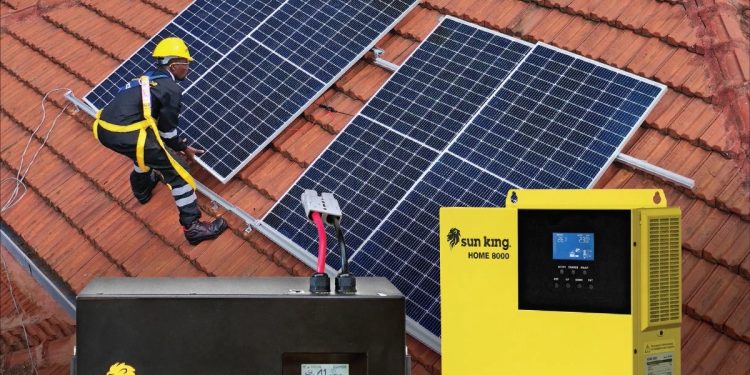Sun King, a leading provider of off-grid solar solutions, has secured an ₦80 billion ($80 million) local currency loan facility in partnership with the International Finance Corporation (IFC) and Stanbic IBTC Bank to accelerate access to solar energy for households and small businesses in Nigeria.
The fully Naira-denominated financing is structured to eliminate foreign exchange risks and scale up Sun King’s pay-as-you-go solar model, which enables customers, especially in low-income and rural communities, to acquire solar power systems through affordable instalments rather than prohibitive upfront payments.
The financing package will empower thousands of Nigerians to transition to clean, reliable, and sustainable energy, addressing a critical need in a country where approximately 40% of the population remains without access to electricity.
“Millions of Nigerians still live without reliable access to electricity, which limits opportunity and undermines resilience,” said Dahlia Khalifa, IFC Regional Director for Central Africa and Anglophone West Africa. “This investment enables scalable local-currency solutions that empower households and businesses with clean, affordable solar power. Beyond energy access, it supports rural employment, boosts productivity, and brings us closer to our shared goal of inclusive, sustainable development.”
Sun King designs, manufactures, distributes, and finances solar home systems in over 40 countries, playing a pivotal role in expanding energy access for underserved populations.
The new investment aligns with the World Bank Group’s Country Partnership Framework for Nigeria and contributes to Mission 300, a joint initiative with the African Development Bank, launched in 2025, which aims to expand energy access across Africa.
A portion of IFC’s financing includes a $25 million senior concessional loan from the Canada-IFC Africa Renewable Energy Program, which is designed to attract private sector funding for climate-focused and innovative early-stage projects in emerging markets.
In parallel, the Nigerian government and the World Bank are set to roll out the Distributed Access through Renewable Energy Scale-up (DARES) program, which will further reduce the cost burden of solar solutions for end users.
This new facility highlights the power of blended finance and cross-sector collaboration in accelerating the adoption of renewable energy solutions and advancing Nigeria’s clean energy transition.










